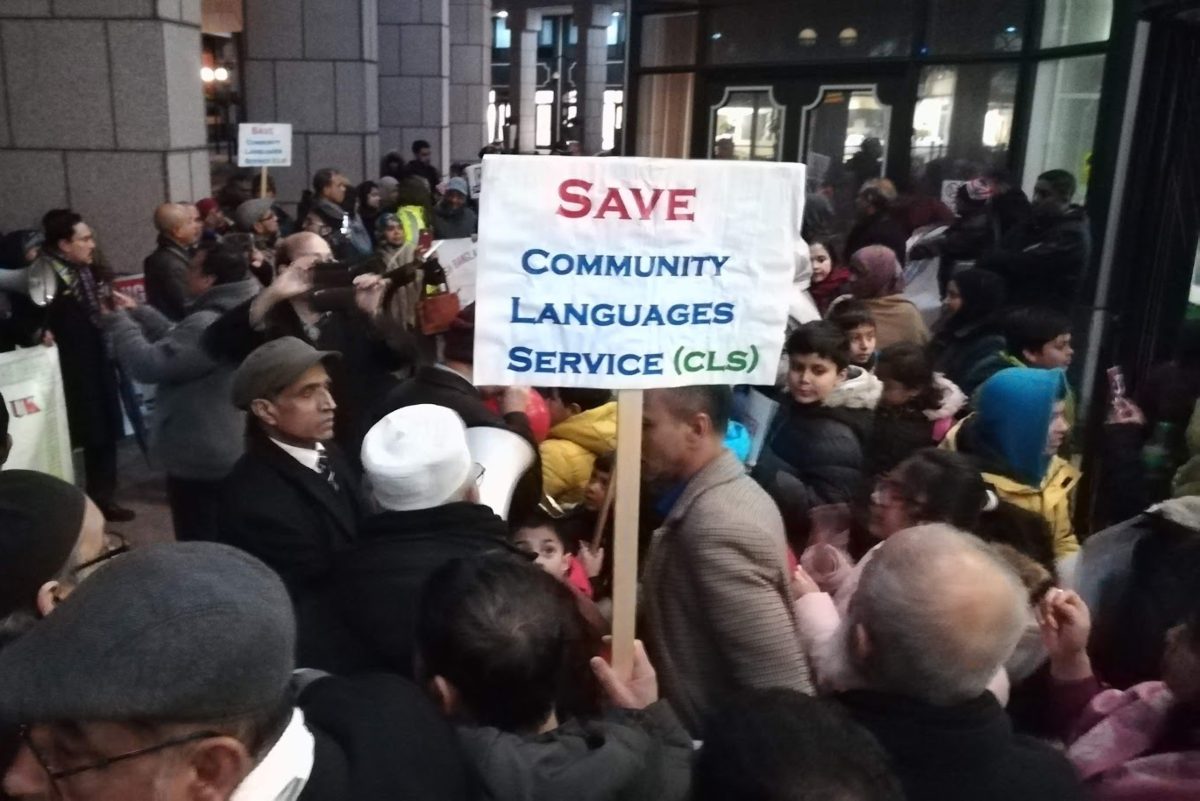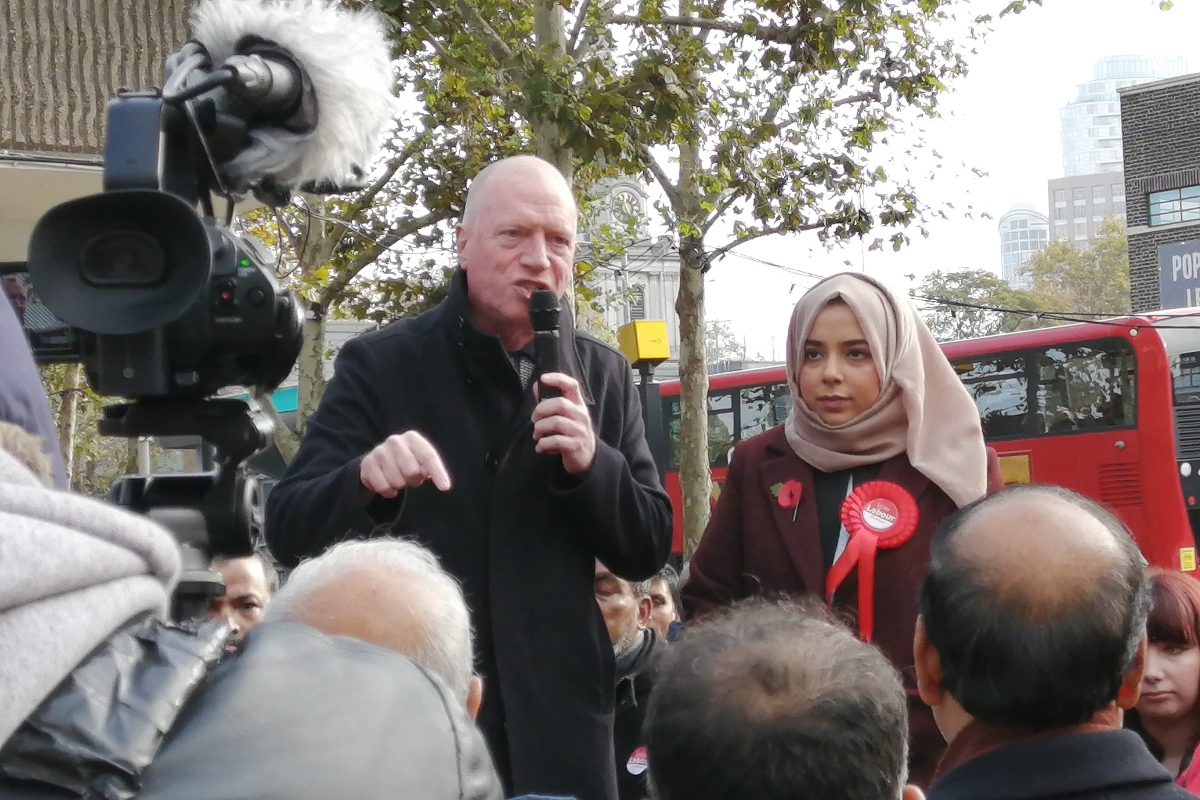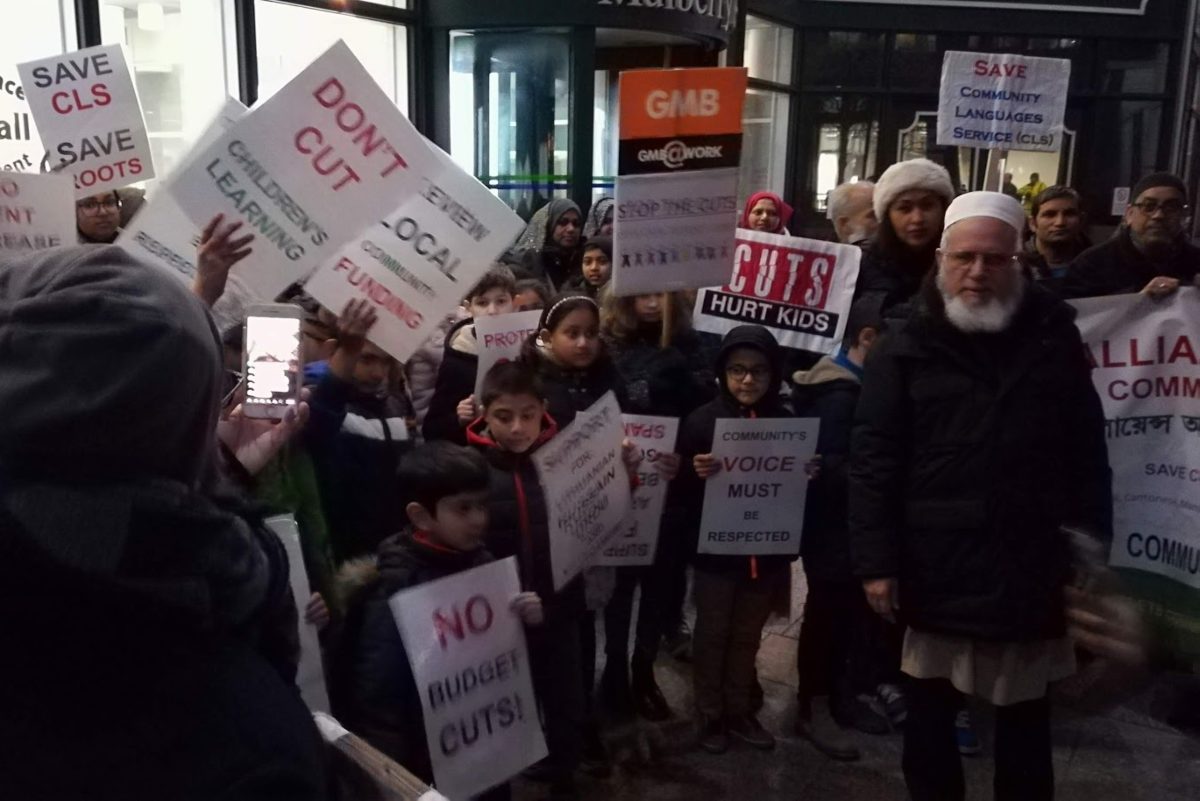Tower Hamlets Labour-run council met with fierce resistance from constituents over plans to phase out the Community Language Service, a desperately needed service in the community. Labour councils must fight the cuts, not implement them.
Over a hundred people lobbied Tower Hamlets council budget meeting on 19 February to oppose the phasing out of the community languages service (CLS).
The campaigners angrily oppose the council’s plans to transfer the service to the responsibility of the community organisations themselves. Currently the service involves 1500 children being taught 11 different mother tongue languages by council employed tutors.
Two different campaigns have jointly raised over 6,000 signatures opposing the council’s plan. The lobby had the support of all council trade unions, which are themselves locked in a battle with the authority which is laying off the whole workforce in order to impose a new contract.
Anger
 The crowd at the lobby was big and angry. Once we got into the council chambers both campaigns addressed the full council and then answered questions from the councillors.
The crowd at the lobby was big and angry. Once we got into the council chambers both campaigns addressed the full council and then answered questions from the councillors.
We argued about the proven value of mother tongue education in the integration and educational results of children overall. The service has been run for decades by the council and it should stay as it is; this was the main message.
The council alleges concerns about the quality of the education delivered by the service. But we answered that this is the responsibility of the council itself, which runs the service, and that concerns about quality would be an argument in favour of increased funding, not cuts.
We pointed out that what the council was doing, under the guise of “community involvement” was in fact privatising a service into the voluntary sector – a sector that is already suffering hardship from cuts in funding.
The council also says that no other council in Britain delivers such a service. To this, we replied that other councils fund similar services, though none of them in-house. However, Tower Hamlets is not any council: it covers a part of London where a large proportion of the population belong to communities that have their own mother languages. It is also one of the boroughs with the highest level of child poverty.
Lib Dem Councillor Rabina Khan spoke in favour of CLS. She criticised the council effectively by pointing out that Mayor John Biggs – in the previous year’s debate about the subject – had promised to keep the service running. However, all she proposed was a one year moratorium on a final decision on CLS.
Astonishment
The intervention by the only Conservative Councillor Peter Golds was outrageous and very provocative. He basically said that we should ‘not be teaching any languages but English’. He added that adults in Tower Hamlets do not speak proper English; and that although the council’s proposals were a step in the right direction (!), all money for CLS should be cut.
Those in the public gallery reacted angrily. One person shouted ‘racist’, and others pointed out he was over the allocated time.
Then something amazing happened. A Labour councillor made a point of order, stating that someone had shouted homophobic abuse at Golds. We looked at each other in astonishment, as we had not heard anyone do any such thing (and the Labour councillor was furthest away from the gallery). Of course, Golds jumped at the opportunity. The speaker, instead of trying to find out the actual facts, berated the gallery and threatened to remove the public from the room.
Another councillor (from Arise) who was the closest to the gallery pointed out he had not heard anything, and that in fact Golds had been called racist, not anything else.
No councillor moved any motion that could have been used as a mechanism for calling on the Mayor to review the decision.
In response to the petitions, both the lead member and Biggs restated the position of the council. No changes were made.
Opposition
 This is yet another instance of this Labour council charging ahead, implementing Tory cuts regardless of strong opposition from the community. In this case – and not for the first time – cuts are being made in an area that is politically sensitive and potentially very damaging for the Labour council.
This is yet another instance of this Labour council charging ahead, implementing Tory cuts regardless of strong opposition from the community. In this case – and not for the first time – cuts are being made in an area that is politically sensitive and potentially very damaging for the Labour council.
In the lobby outside and during the campaign, some expressed the opinion that the Labour council feels safe in having a large majority and no real opposition; that the only way to force it to change would be to vote for other parties. One trade unionist at the lobby even said: “Look at what’s happened in the north with the Labour MPs; perhaps we’ll have to do the same.”
I responded to this by saying: “Yes, Tower Hamlets is overwhelmingly Labour, and we didn’t vote a Labour council in just so that it would implement Tory cuts. But the only solution to this is to get involved in the Labour Party and make sure the council and its policies are fully accountable to Labour members and the electorate”.
From that point of view, it was good to see that prominent Labour and Momentum activists were active in both campaigns. These were led by many from the Bengali community who are in the Labour Party.
It was also good to have a message of support from Poplar and Limehouse Labour MP Apsana Begum. Before being elected, Apsana had been one of the lead campaigners to defend community language services. The labour movement and working-class communities need more fighting representatives like her.






